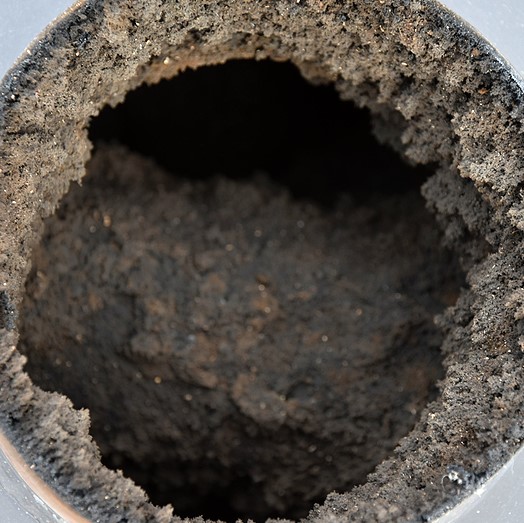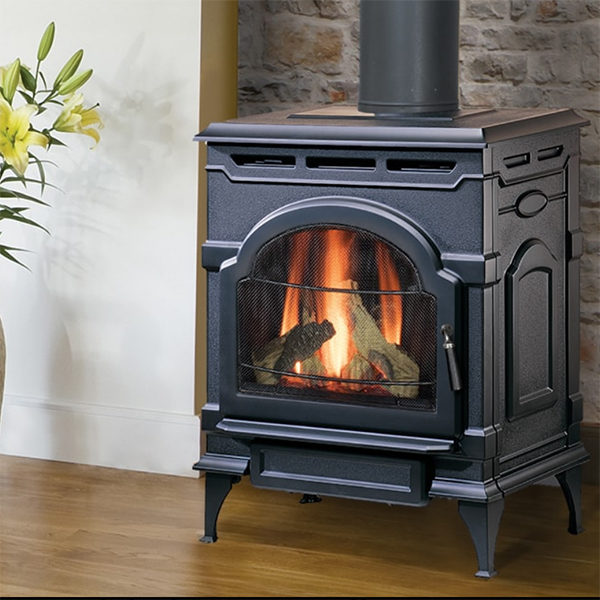Why Gas Heating Stoves Are so Easy to Maintain
A lot can be said about wood-burning heating stoves – including the fact that a fair amount of maintenance is required to keep them safe and performing at their best. Gas stoves, on the other hand, are amazingly simple to operate and need very little maintenance on the part of the homeowner to keep them running right.
 The big difference between gas stoves and wood-burning stoves
The big difference between gas stoves and wood-burning stoves
Both types of stoves produce heat, but because wood stoves use actual wood, they create a mess. The primary mess is in the form of creosote, which is a flammable substance produced by smoke condensation in the flue pipe.
Creosote must be professionally cleaned, usually once a year, to avoid damage to the venting system and a fire in the pipe. Along with creosote, there’s usually plenty of soot and ash that will need to be dealt with.
Gas heating stoves burn clean and produce no creosote. At most, you may have a little burn residue to wipe off the inside of the firebox. You won’t be cleaning up wood chips and embers around the stove, because there won’t be any.
Annual gas stove safety checkups
Your gas stove will run all year with very little involvement from you aside from turning it on, adjusting the heat and turning it off. Your stove will, however, need an annual inspection by a certified, licensed stove and fireplace professional.
This technician will look over all the parts inside your stove to ensure they’re in proper working order. Drafting efficiency will also be checked. This is important because if anything is causing combustion gases to not move easily up the vent pipe, a serious health risk could exist.
If a gas stove has venting issues or isn’t burning its fuel properly, carbon monoxide (CO) could move into the air of your home. Carbon monoxide is an odorless and invisible gas that’s potentially fatal to humans and animals when it enters the blood stream through respiration.
Early signs of carbon monoxide poisoning include a dull headache, weakness, shortness of breath and confusion. The best way to guard against this is by having a working CO monitor in place near the heating appliance.
A big mistake some homeowners make is to put off scheduling a stove inspection if it appears to them that the stove is working fine. A number of things can go wrong with a gas heating stove that won’t be noticed right away but which can lead to serious health or safety risks down the line.
 For this reason, the smartest move is to have a qualified technician inspect your stove once a year, and have this person’s number handy in case you notice anything unusual about your stove or its operation at any other time.
For this reason, the smartest move is to have a qualified technician inspect your stove once a year, and have this person’s number handy in case you notice anything unusual about your stove or its operation at any other time.
Gas heating stoves are wonderful appliances that can be installed in many rooms within your home for efficient zone heating. Today’s models all meet strict EPA guidelines for safety and environmental cleanliness. A variety of sizes are available so you can get just the right amount of heat you need for your room.
If you’ve been thinking about bringing home a powerful gas heating stove, check out the best models on the market at Felgemacher Fireplace Shop, located at 2727 Broadway Suite 5 in Cheektowaga, NY. We sell and install gas freestanding stoves and many other heating appliances throughout the Buffalo and Rochester regions. Call (716) 907-4914 to speak with a stove expert today.



